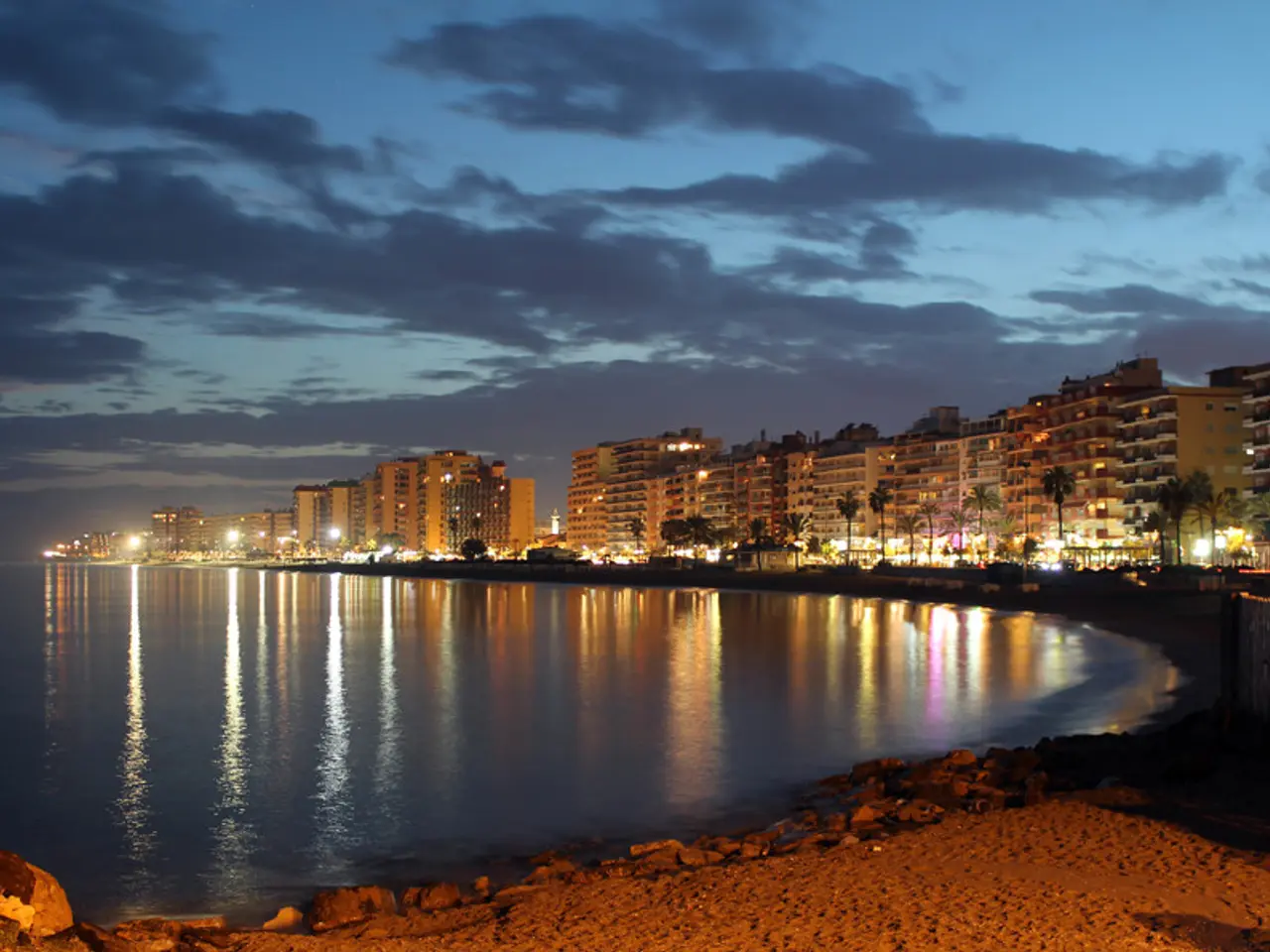South Korea's Busan City
Busan, South Korea's second-largest city, is a bustling metropolis that balances economic growth, cultural preservation, and tourism development. With a population of around 3.28 million in 2023, the city faces challenges related to environmental issues, cultural preservation, and managing tourism growth, but its unique charm and advantages make it a premier tourist destination in the country.
Challenges:
The city's rapid population growth, coupled with urban activities, puts pressure on the environment. As a major port city and industrial hub, Busan grapples with pollution from maritime logistics and urban development. Managing waste, air quality, and coastal ecosystems remains an important challenge as the city strives for sustainable growth.
Rapid urbanization and modernization also raise concerns about maintaining Busan's traditional heritage and cultural sites. Modern construction, including the presence of a Donald Trump Center among the city's skyscrapers, risks diluting the city's cultural identity and historical appeal.
Tourism, a significant contributor to the city's economy, brings benefits but also presents challenges. Busan's popular tourist attractions, such as Haedong Dragon Temple, see heavy visitor traffic, which can strain local resources and infrastructure. Balancing the influx of tourists with community needs and ecological protection is an ongoing challenge.
Advantages:
Busan's status as a maritime logistics hub with world-class ports supports strong economic growth, with the service sector accounting for over 70% of its economy. This economic base bolsters tourism infrastructure and services that support visitors' experiences and cultural events.
The city's rich cultural scene, including unique restaurants, antiques, design-driven initiatives, and traditional temples, enhances its appeal to tourists seeking authentic experiences. Busan's designation as a World Design Capital highlights its commitment to blending tradition with modern design, attracting global interest and investment.
The combination of urban skylines, beaches, mountains, and cultural landmarks creates diverse tourism attractions that support sustainable urban growth and cultural preservation efforts. Visitors enjoy both modern city life and natural beauty, which helps diversify the economy and promote cultural pride.
Despite some challenges, Busan's social and cultural integrity is strong compared to other Korean cities. Places important to Korean culture are in good condition, and history is still present in the city. Finding information about places to visit and see was easy, making it an accessible destination for tourists.
However, the condition of the city's built heritage could be improved, and the rural hinterland of the city is becoming increasingly urbanized, with too many people and tourists. These issues, along with managing environmental concerns and balancing tourism growth with community needs, are key challenges facing Busan as it continues to grow and develop.
[1] Busan Metropolitan City. (2023). Busan's Urban Development. Retrieved from www.busan.go.kr/english
[2] Korea Tourism Organization. (2023). Busan Tourism. Retrieved from www.visitkorea.or.kr/english/busan
[3] Lee, J. (2022). Busan's Tourism Development Challenges. Retrieved from www.koreatimes.co.kr/www/news/biz/2022/08/228_323437.html
[4] Busan Design Office. (2021). Busan Design Capital 2021. Retrieved from www.bdo.busan.kr/english/index.do
[5] Kim, Y. (2022). Preserving Busan's Cultural Heritage. Retrieved from www.koreatimes.co.kr/www/news/biz/2022/02/220_320419.html
- Busan's expeditions into environmental science focus on managing waste and coastal ecosystems for sustainable growth.
- Climate change and its impact on the environment is a key issue in the city's travel and tourism industry.
- Renewable energy solutions could play a vital role in Busan's manufacturing industry to reduce pollution from urban development and maritime logistics.
- The history of Busan's industry can be traced back to its role as an oil-and-gas center, but the shift towards cleaner energy sources is now a priority.
- The city's aerospace sector is looking to collaborate with environmental science for more efficient and eco-friendly transportation methods.
- The retail sector encourages sustainable practices by promoting local products and supporting small businesses.
- Interior design in Busan reflects a blend of traditional Korean aesthetics and modern, design-driven initiatives.
- Cooking classes showcasing global cuisines are becoming popular attractions for tourists seeking authentic cultural experiences.
- The transportation of goods and people is integral to Busan's role as a logistics hub, but investment in smart-home devices and gadgets could help improve energy efficiency.
- Cybersecurity concerns are a growing issue in the city's diversified business landscape, from the retail sector to the banking-and-insurance industry.
- Lifestyle choices, including adopting sustainable living practices and healthy cooking, are being promoted to improve personal-finance management.
- Outdoor-living spaces, such as parks and gardens, provide important green spaces for city dwellers and help combat air pollution.
- Food-and-drink experiences, ranging from street food samplings to high-end dining, contribute to Busan's vibrant dining scene.
- Wealth management strategies emphasize investing in renewable energy and green technology companies.
- The housing market in Busan offers a range of options for various income levels, from luxury condos to affordable apartments.
- Personal-finance planning involves smart budgeting and debt-management skills to cope with rising living costs.
- Recipe-sharing platforms showcase traditional Korean dishes as well as global cuisines, highlighting the city's diversity.
- Learning about and preserving Busan's history is an important aspect of the city's tourism and industry development.
- The fusion of technology and artificial intelligence is shaping the future of businesses, careers, and the housing-market in Busan.
- The growth of the financial sector, including fintech and investing in real-estate, is driven by the city's robust economy.
- The modernity of commercial and residential buildings in the city, like the Donald Trump Center, is a double-edged sword in balancing cultural preservation and economic growth.
- Saving for a secure financial future requires long-term planning and regular contributions, even amid financial uncertainties.
- The smartphones and smart-home devices market in Busan is growing, driven by consumer demand for convenience and energy efficiency.
- Data and cloud computing are critical for the city's industries as they pursue digital transformation.
- Gardening enthusiasts can find opportunities in the city to practice sustainable living by growing their own produce and maintaining green spaces.
- Balancing environmental concerns, cultural preservation, and economic growth are complex challenges for Busan as it evolves into a global city.




